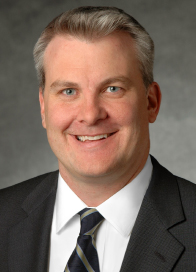
David Kolata, CUB executive director
Environmental Defense Fund (EDF) and the watchdog Citizens Utility Board (CUB) praised Illinois regulators for two major rulings this fall that launch innovative dynamic-pricing pilot projects for customers of the state’s biggest electric utility. The projects place Illinois among the leading states for developing clean energy tools that empower customers to control their costs and reduce power plant pollution.
The Illinois Commerce Commission (ICC) on Oct. 2 approved a “Time of Use” pricing pilot for Commonwealth Edison. EDF and CUB have been fighting for Illinois utilities and the ICC to approve a time-of-use rate for almost five years. The pilot will allow customers to sign up for a plan that charges different power prices during three distinct periods each day. TOU programs encourage participants to avoid heavy electricity usage during high-demand times when power is dirtiest and most expensive.
Just two weeks before, on Sept. 18, the ICC approved a separate “Bill Protection” pilot program that will guarantee savings for a targeted group of customers who participate in Hourly Pricing. That’s a successful dynamic pricing program that charges an electricity rate that changes by the hour. CUB and EDF are proponents of the program, and a recent analysis by CUB found that Hourly Pricing would have saved money for 97 percent of ComEd residential customers in 2016.
“This is a victory for energy innovation, our climate, and Illinois consumers,” CUB Executive Director David Kolata said. “Electric customers need a bigger toolbox to make their energy cleaner and more affordable. Illinois has to push the envelope, because we no longer have the luxury to wait. Our climate demands immediate action, but so do electric customers, because they need pricing plans that give them more control over their bills and an opportunity to cut their costs.”
“EDF is pleased that customers in Illinois will be empowered to reduce their bills and their carbon footprint, even using the exact same amount of electricity, just by using it at different times,” said Christie Hicks, senior attorney at EDF. “By shifting usage away from times of day when demand is highest, the most-polluting, most expensive fuel sources can be called upon less. This is a win-win for customers and the environment.”
Even though market electricity prices can dip to low levels over the course of a day, most ComEd customers are chained to a standard power price that rarely changes throughout the year. The value of dynamic pricing plans, such as TOU and Hourly Pricing, is that they give customers the opportunity to take advantage of lower rates. Such programs incentivize participants to shift electricity use away from periods of intense demand when the dirtiest generating plants are online, and power is most expensive.
Both proposals were initiated by ComEd in November of 2018 and were approved by the ICC, with input from consumer and environmental advocates like EDF and CUB. A summary:
Time of Use (TOU) pilot (Docket # 18-1824): This voluntary pilot program will introduce three distinct pricing periods—Off Peak (10 p.m.-6 a.m.); Super Peak (2 p.m.-7 p.m.); and all other times—with higher prices during peak times and lower prices during off-peak times. TOU pricing offers another option to customers who want to participate in dynamic pricing, but with more predicable rates than Hourly Pricing. For example, under the TOU pilot program, participants have the opportunity to pay reasonable rates in all but five “super peak” hours of the day. The four-year pilot program is expected to begin in June of 2020. All ComEd residential customers are eligible to participate, but enrollment will be capped at 1,900 participants.
Hourly Pricing Bill Protection Experiment (Docket #18-1772): Under this pilot, ComEd will notify 30,000 customers who pay the utility’s standard fixed supply rate that they would have saved money on Hourly Pricing the previous year. Of those customers, about 700 will be able to sign up for Hourly Pricing for a year with a short-term bill-protection guarantee. That means if, at the end of the year, they overpay on the program compared with standard rates, ComEd will refund them the full amount.
The goal of the pilot, which will begin in the spring of 2020, is to determine if offering the bill-protection option will increase participation in Hourly Pricing. Since the program began in 2007, it has saved participants about 20 percent on energy supply, or a total of nearly $20 million, and reduced carbon emissions by 13,223 metric tons. Yet, there are only 26,000 participants in the program, less than 1 percent of ComEd’s residential customer base.
This is the latest energy innovation since the Illinois General Assembly passed a law in 2011 allowing Illinois’ two major electric utilities to install new digital meters. EDF, CUB and other advocates have successfully pushed for groundbreaking clean energy innovations, including:
- 2016: A first-of-its-kind metric to measure how smart-grid improvements help reduce greenhouse gas (GHG) emissions.
- 2016: The Future Energy Jobs Act, which improved energy efficiency programs and gave a historic boost to renewable energy in Illinois.
- 2017: An Open Data Access Framework, which allows researchers to access a wealth of anonymous energy-use data from smart meters.

